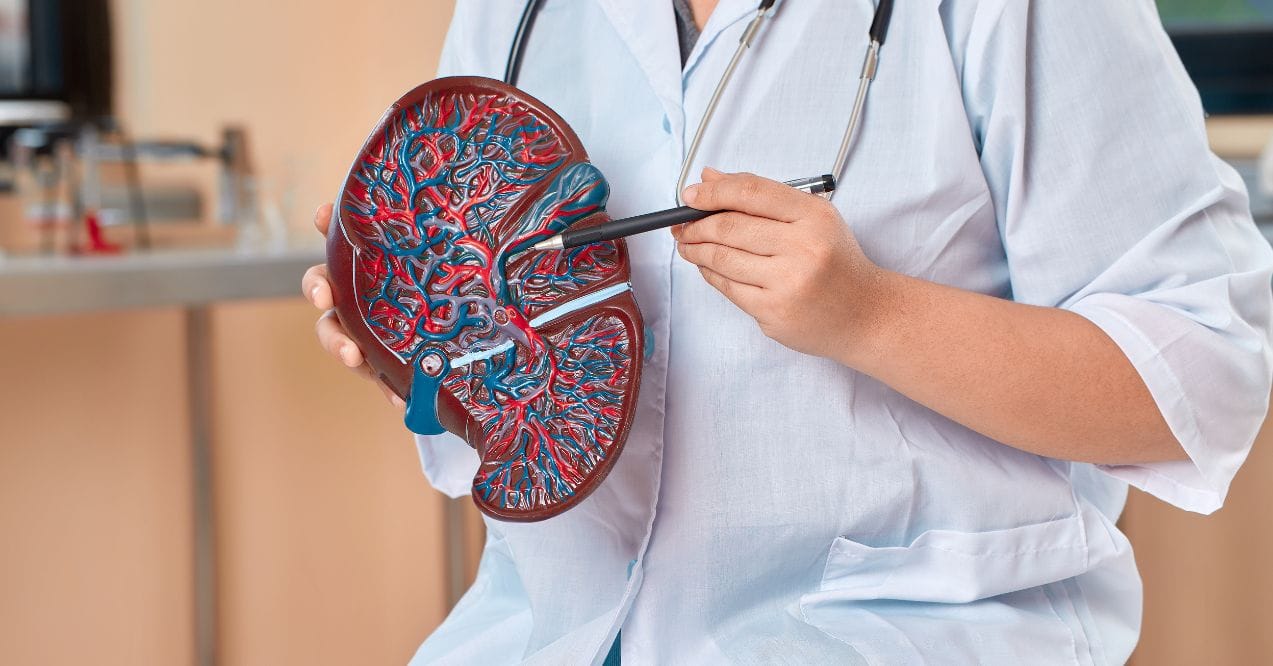Elevated Liver Enzymes – Causes, Symptoms & Prevention
Medically reviewed by our experts


Elevated liver enzymes appear in blood test results when liver cells release higher amounts of certain proteins into your bloodstream. These enzymes include ALT (alanine aminotransferase), AST (aspartate aminotransferase), ALP (alkaline phosphatase), and GGT (gamma glutamyl transferase). When your liver experiences stress or damage, these enzyme levels rise above their normal ranges.
This increase often signals that something needs attention in your liver health. The good news is that many causes are treatable through lifestyle changes and proper care.

What Are Liver Enzymes?
Your liver produces four main enzymes that doctors measure through blood tests. ALT and AST help process amino acids and are found primarily in liver cells. ALP works in your bile ducts and bone tissue, while GGT assists with moving other molecules across cell membranes.
These proteins speed up chemical reactions in your liver that break down toxins and produce essential substances. When liver cells become inflamed or damaged, they leak these enzymes into your bloodstream at higher rates.
Blood tests measure these enzyme levels to assess liver function and detect potential problems early. Normal ranges vary slightly between laboratories, but your doctor will interpret your specific results based on your overall health picture.
Common Causes of Elevated Liver Enzymes
When liver enzymes appear elevated in blood tests, it’s crucial to understand the potential underlying causes. These can range from common lifestyle factors to more serious medical conditions, all of which impact the liver’s ability to function optimally.
Fatty Liver Disease
Non-alcoholic fatty liver disease (NAFLD) affects millions of adults when excess fat builds up in liver cells. This condition often develops alongside obesity, diabetes, or high cholesterol levels. Alcoholic fatty liver disease occurs from excessive alcohol consumption over time.
Both types cause liver inflammation that raises enzyme levels. If you’re wondering can a fatty liver cause elevated liver enzymes, the answer is yes, as fat accumulation damages liver cells. Managing your diet plays a key role in addressing this condition, and you might find the fatty liver diet plan helpful for guidance.
Gallstones and Bile Duct Issues
Gallstones can block bile ducts, causing bile to back up into the liver. This blockage triggers inflammation and raises enzyme levels, particularly ALP and GGT. The connection between gallstones and elevated liver enzymes becomes clear when stones obstruct normal bile flow.
Small stones may pass without symptoms, while larger ones cause severe pain and complications. Regular monitoring helps detect these issues before they become serious.
Alcohol Consumption
Regular alcohol intake stresses liver cells and causes enzyme elevation. Even moderate drinking can temporarily raise ALT and AST levels. Heavy, long-term consumption leads to alcoholic hepatitis and potentially permanent damage.
Your liver needs time to process alcohol, and excessive amounts overwhelm its capacity. Limiting or avoiding alcohol gives your liver the opportunity to recover and regenerate healthy cells.
Medications and Supplements
Many common medications can raise liver enzyme levels as your body processes them. Acetaminophen, statins, and certain antibiotics frequently cause temporary elevations. Some herbal supplements and over-the-counter products also affect liver function.
Always inform your healthcare provider about all medications and supplements you take. They can adjust dosages or suggest alternatives if your enzyme levels become concerning. Drug-induced liver injury (DILI) accounts for many cases of elevated enzymes in otherwise healthy individuals.
Physical and Emotional Stress
Physical stress from illness, surgery, or extreme exercise can temporarily raise enzyme levels. Your body’s stress response affects multiple organ systems, including the liver. Wondering if stress can cause elevated liver enzymes? Research suggests that chronic stress may contribute to liver inflammation through various pathways.
Managing stress through relaxation techniques, adequate sleep, and regular moderate exercise supports overall liver health. Your emotional wellbeing directly influences your physical health markers.
Coffee and Liver Health
Research on coffee’s effects on liver enzymes shows interesting results. Some studies suggest moderate coffee consumption may actually support liver health. However, the relationship between how coffee can affect liver enzymes varies among individuals based on genetics and overall health status.
Black coffee without added sugars or creamers appears most beneficial. Excessive caffeine intake, however, may stress your system and counteract potential benefits.
Autoimmune Conditions
Autoimmune hepatitis occurs when your immune system mistakenly attacks liver cells. This condition causes chronic inflammation and persistently elevated enzyme levels. Women develop autoimmune hepatitis more frequently than men, and it can occur at any age.
Early detection and treatment help manage symptoms and protect liver function. Regular monitoring ensures that treatment remains effective over time.
Symptoms and Possible Health Risks
Many people with elevated liver enzymes experience no symptoms initially. When symptoms do appear, fatigue often comes first, followed by mild discomfort in the upper right abdomen. Some individuals notice their urine becoming darker than usual or experience unexplained itching.
As enzyme levels remain high, additional symptoms may develop:
- Yellowing of skin or eyes (jaundice)
- Swelling in legs or abdomen
- Easy bruising or bleeding
- Mental confusion or difficulty concentrating
Long-term Health Impact
A patient with abnormal liver enzyme levels needs proper evaluation to determine the underlying cause. Without addressing the root issue, ongoing liver inflammation can progress to fibrosis, where scar tissue replaces healthy liver cells. Learning what happens when your liver enzymes are high helps you take appropriate action.
Continued damage potentially leads to cirrhosis, where extensive scarring disrupts normal liver function. This progression typically takes years but accelerates with ongoing harmful exposures. Early intervention often helps slow this progression, making regular monitoring essential for those at risk.
Diagnosis and Testing
Liver function tests measure enzyme levels through a simple blood draw. ALT levels normally range from 7 to 56 units per liter, while AST ranges from 10 to 40 units per liter. ALP typically falls between 44 and 147 units per liter, with GGT ranging from 9 to 48 units per liter.
Your results may vary slightly based on the laboratory’s reference ranges. A single elevated reading doesn’t always indicate a problem, as levels can fluctuate temporarily. Your healthcare provider considers your complete health picture when interpreting results.
Additional Testing Methods
When initial tests show elevated enzymes, doctors may recommend:
- Repeat blood tests to confirm findings
- Ultrasound imaging to visualize liver structure
- Additional blood markers for specific conditions
- Sometimes a liver biopsy for detailed tissue analysis
These tests help identify the specific cause and guide treatment decisions. Your medical history, physical examination, and risk factors all contribute to determining which tests are most appropriate.
Prevention and Liver Health Tips
Supporting liver health starts with nutritious food choices. Focus on whole grains, lean proteins, and plenty of colorful vegetables. Limit processed foods high in added sugars and unhealthy fats that burden your liver’s processing capacity.
Portion control matters as much as food quality. Maintaining a healthy weight reduces fat accumulation in liver cells. Stay hydrated with water throughout the day, as proper hydration supports all liver functions.
Lifestyle Modifications
Regular physical activity benefits liver health in multiple ways:
- Reduces fat buildup in liver cells
- Improves insulin sensitivity
- Supports healthy weight management
- Enhances overall metabolic function
Aim for at least 150 minutes of moderate exercise weekly. Walking, swimming, or cycling work well for most fitness levels. Start slowly and gradually increase intensity as your fitness improves.
Protective Habits
Several daily habits protect your liver from damage. Limit alcohol consumption or avoid it entirely if you have existing liver concerns. Take medications only as directed and avoid combining acetaminophen with alcohol.
Practice good hygiene to reduce infection risks. Get vaccinated against hepatitis A and B if recommended by your healthcare provider. Manage existing health conditions like diabetes or high cholesterol that affect liver health.
Supportive Nutrients
Certain nutrients may support liver function when consumed through food or supplements. Vitamin E, found in nuts and seeds, potentially helps with fatty liver disease. Omega-3 fatty acids from fish or supplements may reduce inflammation.
Milk thistle and turmeric have shown promise in supporting liver health in some studies. Always discuss supplements with your healthcare provider before starting any new regimen. For additional liver support options, explore liver support supplements that may complement your wellness routine.
Final Thoughts
Addressing elevated liver enzymes early often leads to better outcomes and may help avoid serious complications. Regular monitoring through blood tests helps track your progress and adjust your approach as needed. Work closely with your healthcare provider to develop a personalized plan based on your specific situation.
Taking proactive steps toward liver health benefits your entire body. Small, consistent changes in diet and lifestyle often produce significant improvements in enzyme levels over time.
Strenuous workouts can cause temporary increases in ALT and AST due to muscle breakdown. These levels typically return to normal within a few days of rest. Regular moderate exercise, however, supports long-term liver health and may help normalize chronically elevated enzymes.
Not necessarily. Enzyme levels can rise temporarily from muscle injury, certain medications, or recent illness. Some people have slightly elevated levels without any liver damage. Your doctor will consider your overall health and may repeat tests to determine if further evaluation is needed.
Recovery time depends on the underlying cause. Simple lifestyle changes may normalize levels within 2-4 weeks for mild elevations. More significant issues like fatty liver disease might require several months of consistent effort. Some conditions need ongoing management to maintain healthy enzyme levels.
Popular Articles
Advertisement. This site offers health, wellness, fitness and nutritional information and is designed for educational purposes only. You should not rely on this information as a substitute for, nor does it replace, professional medical advice, diagnosis, or treatment. If you have any concerns or questions about your health, you should always consult with a physician or other health-care professional. Do not disregard, avoid or delay obtaining medical or health related advice from your health-care professional because of something you may have read on this site. The use of any information provided on this site is solely at your own risk.












